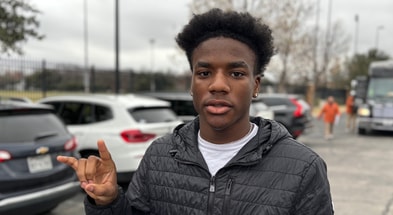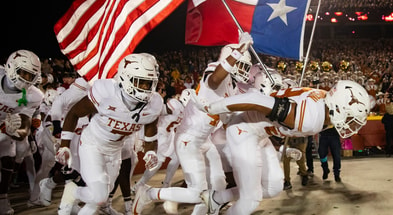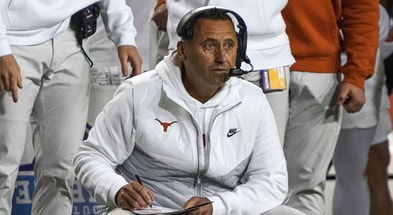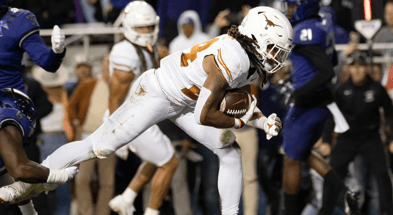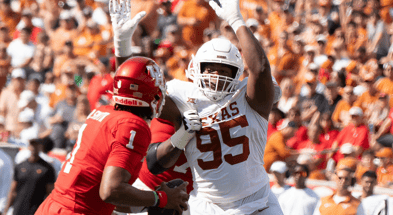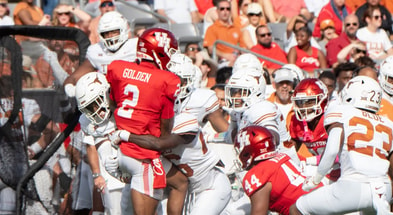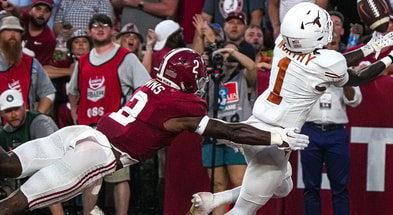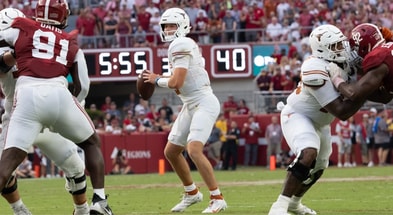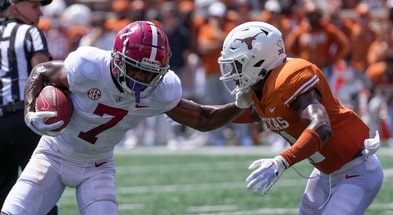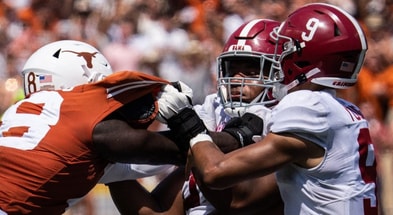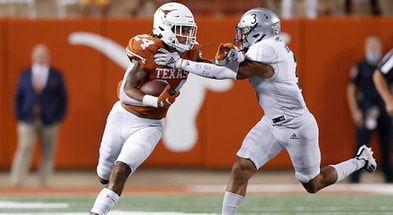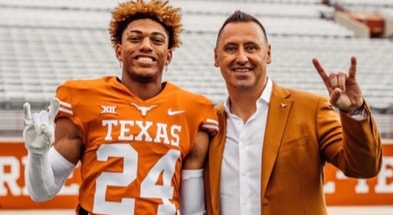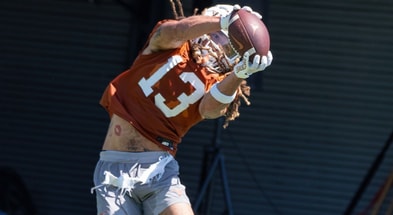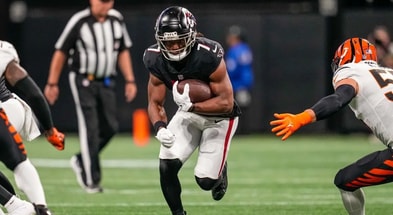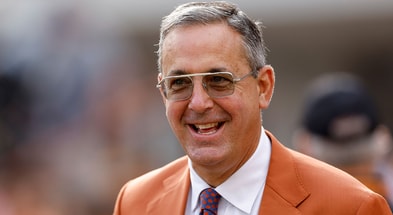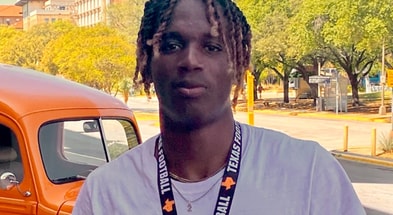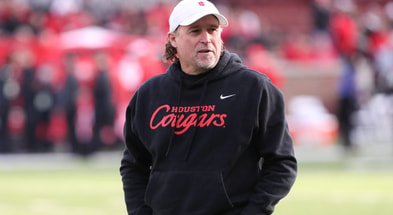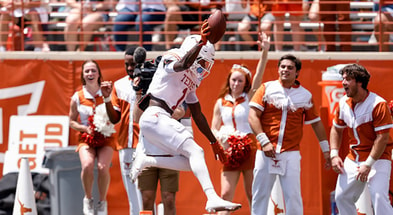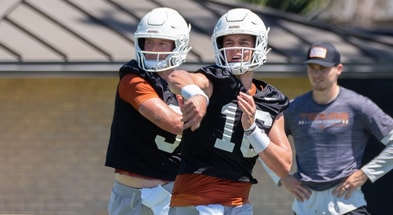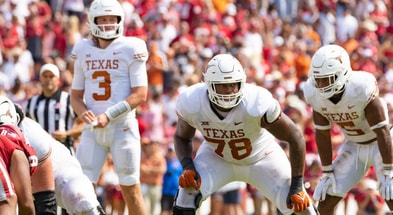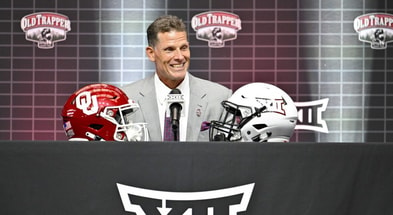An ode to Gary Patterson

Gary Patterson has often been a little bit of a target here. His bluster and ego which pair regularly with an authoritarian view of how football programs should be run in the best interests of the players were often a little amusing or eyebrow raising, to say the least.
The man was a phenomenal coach though and some of his moral lessons, even if they regularly hinted at a value for humility he didn’t seem to model himself, were clearly important and valuable for his players.
He went 181-79 over 20 years, rounded up to 200 wins if you count his victories as an assistant for Dennis Franchione, with one Conference-USA championship, three Mountain West championships, and a share of the 2014 Big 12 title. It’s a hilarious and cautionary tale now to tell of how Gary Patterson was the foundation of TCU’s strength under Franchione, who was hired away by Alabama and bailed on the Tide for Texas A&M before ultimately getting fired. TCU promoted Patterson and took off on a phenomenal run which has more or less concluded with the building of a statue for him.
The Frogs’ zenith under Gary was going 13-0 in 2010 and narrowly beating a good Wisconsin team in the Rose Bowl. From there they were promoted to the Big 12 to help replace Texas A&M, Missouri, Nebraska, and Colorado.
It was tougher from there. The Frogs were 45-41 within Big 12 play and Gary honestly hung on to his job in large part because he beat Texas seven times in 10 tries. When Steve Sarkisian came to the Fort this year and beat the Frogs while Bijan Robinson ran for over 200 yards, you knew it was all over.
Patterson will always be known for his 4-2-5 defense which is now ubiquitous at every level of the game. The real genius was the subdivision of parts, his front was divorced from the secondary and the secondary was split into two parts, allowing the Frogs to bring endless combinations of calls. Originally, Patterson would call the back end and longtime D-line coach Dick Bumpas handled the front end.
Bumpas retired after the 2014 season and the TCU defense really struggled for the next few years as Patterson worked out the process of calling both the front and the back end on a snap to snap basis.
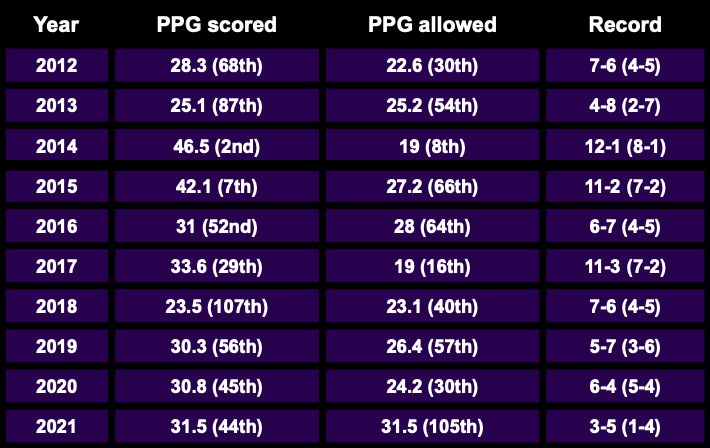
You have to wonder if his adjustment to practices in order to master the defensive play-calling process ended up hampering the offense. The offense was also unquestionably hampered though by some fairly uninspired staffing choices by Patterson, who post-Bumpas would routinely promote from within and virtually never bring in either big name staffers who could contend with his authority or outside voices who could help bring many changes to the TCU way.
They also had a really bad spell at quarterback from 2018-2020 until Max Duggan started to find his feet down the stretch of 2020.
Patterson’s 4-2-5 wasn’t really innovative by the time the Horned Frogs came to the Big 12. The Art Briles Baylor teams which tormented him early on had a system built around RPOs and spread play-action which was brutal for the Frog defense. You can read about it in my book. Art Briles left the league in disgrace after the 2015 season, but Oklahoma had already brought in Lincoln Riley to follow a similar path and Gary Patterson is officially resigning from his job without ever having defeated the Sooners while Riley was on their staff.
The division of labor and emphasis on speed and versatility in Patterson’s 4-2-5 was undone by the similar compartmentalization of the spread RPO/play-action game. The Frogs could no longer gang up on run or pass but had to hold up either in the secondary or up front against even numbers.
To the extent TCU continued to play good defense in the late 2010s, it happened as a result of fielding a good pass-rush (Ben Banogu) and having some NFL-caliber cornerbacks (Ranthony Texada).
Late in Patterson’s time they made a few interesting changes to the roster. They were able to add blue chip recruits/transfers in Zach Evans (released from his NLI by Georgia), Shadrach Banks (Texas A&M), and Marcel Brooks (LSU) all of whom were ranked in recruiting on a much higher level than any previous TCU players.
As of yet only Evans has actually taken the field for the Frogs though and he conspicuously missed the big Oklahoma game with a foot injury which was allegedly exasperated before the Kansas State game. There’s a fair amount of expectation he’ll transfer after the season. This was a departure from TCU’s practice of developing raw, lower ranked athletes, and was not yielding much fruit.
Patterson seemed to lose his team in 2021, routinely getting gashed on the ground by anyone who was committed to testing their will in the trenches. Injuries hurt the Frogs, but they were able to stabilize the back end and field a steady rotation in league play. They seemed mentally broken in the final two games against West Virginia and Kansas State.
The Frog offense was mostly oriented around the spread run game, but when Max Duggan broke a bone in his foot and Zach Evans injured his own foot, the conservative gambit by the defensive head coach was revealed to have been a mistake. The best offensive player for the Horned Frogs is actually wide receiver Quentin Johnston, but the Frogs had put more of their practice and playbook focus on a run game which couldn’t rescue them when the defense folded.
Top 10
- 1Breaking
Leonard Hamilton
FSU coach to step down following season
- 2New
Top 25 shakeup
AP Poll sees massive changes
- 3Hot
NFL Mock Draft
QBs falling in ESPN 2-round mock
- 4
John Calipari
'He was the right guy for the job'
- 5
Jeremiah Smith reacts
Chip Kelly news hits hard
Get the On3 Top 10 to your inbox every morning
By clicking "Subscribe to Newsletter", I agree to On3's Privacy Notice, Terms, and use of my personal information described therein.
Overall, Gary Patterson never really adjusted adequately to the Big 12. He repeatedly tried to orient his team’s strategy around his own very real ability to call defenses at a high level and it was never enough in a league filled with other great coaches, many of whom embraced a more humble and equitable approach to winning games. Mike Gundy for instance has leaned on a great defensive coordinator hire in Jim Knowles over the last two years to grind out wins while his own offensive program has stalled.
Matt Campbell has produced several great offenses in Iowa State but is perhaps known best for his counterpart Jon Heacock who introduced the “flyover defense,” and the next wave of defensive innovation after Gary Patterson.
The Horned Frogs had a nice stretch on offense from 2014 to 2015 when Trevone Boykin led a high-flying Air Raid attack, including the golden year in 2014 when a veteran and classic Patterson/Bumpas defense coexisted with the Boykin Air Raid. Then they fell back on Patterson’s defense and couldn’t achieve the same heights again.
Before talking about what’s next, I’d like to go back to my favorite Gary Patterson moment. The two of us had a handful of fun exchanges at Big 12 Media Days over the years, easily my favorite Gary Patterson moment came at the 2019 Big 12 Media Days. I was prying for information about potential adjustments to the TCU offensive attack and, well, I’ll just repost the exchange.
Ian Boyd: Coach, to that point, in the spring you mentioned bringing Malcolm Kelly from Houston (receivers coach) and installing maybe some uh, some vertical..
Gary Patterson: No, I didn’t say that. I said we tweaked some but not necessarily did we do what Houston did.
Ian Boyd: Okay, you mentioned some more vertical passing elements to the offense?
Gary Patterson: Well, I mean that’s what we did in ’14 also, I think we have some people in Taye Barber and Reagor and some of these guys that can really run. I mean Derek Davis was a 46.7 400 m guy but he was just a freshman last year, Taye Barber was just a freshman so…
Ian Boyd: Is the way to control games then less to hold the ball on offense and more to make sure you score and then make sure it takes them a long time to score?
Gary Patterson: The key to winning ball games is scoring one more point than the opponent. Whatever you gotta do, whether it’s 51-50 or 3-2.
Ian Boyd: When you mentioned making them take seven minutes to score while you have a lead.
Narrator pause: The angle I was trying to take here was over using vertical pass patterns aggressively. A hesitation teams often have with chucking it deep a lot is that those throws tend to lengthen the game and create more possessions for each team. But Patterson had just given a soliloquy on alternative means of game control rather than playing conservatively on offense and I was wondering if he was suggesting that you could stay aggressive on offense and use your defense to grind out the clock.
Gary Patterson: Well that’s your, that’s like me making a christmas list for Santa Claus. Okay, there’s “here’s how I’d like it to go….you can’t tell people too much about what you do and your philosophy because, I’ll be honest with you…here I’ll give you a great example.
Narrator pause:

So here’s something I bet you’ve never thought of…so Wisconsin goes into the Rose Bowl, their offensive coordinator and the offensive coordinator at Boise State were both vying for the offensive coordinator job at Texas.
Ian Boyd: I remember that….
(this was after the 2010 regular season. Eric Nahlin was writing at recruitocosm at this time just before moving to Inside Texas and well before I was hired by that site. He was giving a lot of good updates at the time about how Mack Brown was looking to replace Greg Davis with a coach that put more emphasis on the power run game.)
Gary Patterson: So do you think you can get the offensive coordinator job at Texas by just running for 300 yards and not throwing the football and just pounding TCU?
Ian Boyd: Apparently not.
Gary Patterson: Probably not. So, I took into consideration, the more I read the papers and the more I listened that probably they would try to play-action and do more so that played into our advantage until that last drive. We had them incomplete, 2nd and 10, well now that plays to that advantage of smaller TCU team, so, kinda like I’m doing right now.
Narrator pause: There’s been some debate online over whether TCU really gained an advantage here. It’s notable that the first play of the game was a 40-yard run by Badger RB Montee Ball but also that the Frogs won the game. At any rate, Patterson felt that it mattered which is the relevant point here.
I just read a Purdue beat writer, and I got it in my file, that the only time we played good defense in the Big 12 was when we played bad offense. Well tell me the bad offense in the Big 12? Tell me one, good luck with that besides…we’ll just put ours up there then.
Narrator pause: It’s hard to come away from this without concluding that either Gary Patterson or people under him are carefully monitoring the recruiting sites, message boards, and other sources of closer team info from other squads to get good hints into what’s going on. Maybe lots of coaches do this but Patterson will say it outright or hint at it all the time. He once even mentioned that he doesn’t want their spring games televised because he watches other teams spring games and scouts them, evidently drawing some real value from doing so.
Ian Boyd: So you’re not looking to score more aggressively this season…
Gary Patterson: If you haven’t figured this out, you’re probably going to get the same roundabout answer. I’ve been with insurance companies and all of it, you can ask those questions any way you want and I promise you’ll get the same answer.
Classic.
That was Gary Patterson in a nutshell, dodging prying questions about his team and method with a parable which happened to feature his own exploits. In this instance, dunking on Paul Chryst for trying to play-action his TCU team in the Rose Bowl (his greatest win) and anticipating Chryst’s overaggressiveness with his own gameplan to get the win.
We’ll talk about what’s next for TCU later, but what’s next for Gary Patterson I think is pretty simple. Patterson loves to talk and he’s pretty good at it. There’s a near certainty he’ll end up working on television in the near future and I expect he’ll do a fantastic job. Whether he’s mostly just entertaining or if he starts to divulge all of his secrets and long-gathered knowledge of the Big 12 and modern college football (extremely probable) he could be one of the better television analysts immediately.
I’m looking forward to it. Good luck with the next phase of an already amazing career, Gary.
Discuss the legendary run by Gary Patterson for free on the Flyover Football board!

